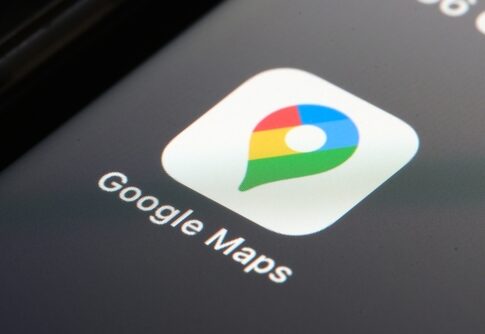Google Maps is constantly revealing new surprises. Cyffylliog, a quiet village in Wales, is in a digital uproar after an imaginary Aldi supermarket appeared on Google Maps. A prank resulted in the appearance of a fake Aldi on Google Maps in Cyffylliog, confusing visitors. The fictional location was successfully removed by local residents and Aldi.
Digital Misinformation Strikes Cyffylliog
A prankster created a fake Aldi supermarket on Google Maps, labeling a grassy field in Cyffylliog, Denbighshire, as such. This caused confusion among both customers and delivery personnel. The false entry resulted in a “endless stream” of confused visitors arriving at the nonexistent store, highlighting the potential drawbacks of digital mapping services that are used on a daily basis. Many vehicles, including a milk tanker, struggled to navigate the narrow roads, forcing a local farmer to assist them.
While the prank was most likely intended to be humorous by taking advantage of Google Maps’ easy modification capabilities, it irritated Cyffylliog’s residents. From delivery disruptions to potential safety hazards posed by unexpected traffic, the prank highlighted the difficulties inherent in unchecked digital entries. Google Maps, despite being an invaluable tool in modern navigation, demonstrated vulnerabilities allowing misguidance of unawares.
…so we went to try it out. There's no sign there or anything. If it weren't for the Google map mention, we would have driven right past it. 10/10. Would recommend. pic.twitter.com/eZf6oNAZiW
— Bec Hill (@bechillcomedian) August 21, 2022
Decoding Digital Entraps
This prank is part of a larger trend of misinformation on digital platforms. In previous cases, errors such as the replacement of London’s Tube icons with New York Metro symbols highlighted the importance of thorough verification. The release of incorrect data or pins not only causes inconvenience, but it can also have far-reaching consequences in critical situations, such as emergency services responding to incorrect locations.
“A local resident complained an “endless stream” of holiday makers were driving along the lane “looking confused”.” – A local resident
Furthermore, the prank unintentionally promoted the village on a global scale, albeit not in a positive way. Aldi confirmed that it has no plans to open a store in the area after becoming involuntarily involved in the plot. The prank’s geographic and logistical veracity did not match Aldi’s retail expansion plans, which aim to focus on urban and suburban areas rather than remote fields or lanes.
Quiet Welsh Village Terrorized by Shoppers Looking for Supermarket That Only Exists on Google Maps https://t.co/Ve72byY6pE
— ContinuousHits 94KEY (@94KEY) January 7, 2025
Lessons from Cyffylliog
Aldi and concerned villagers worked together to remove the false marker, restoring peace to their rural environment. However, this incident serves as a reminder of the importance of verification standards when working with digital tools. Ensuring authenticity helps to maintain trust and reduces the potential for chaos caused by technological manipulation. As technology becomes more integrated into daily life, advocating for increased user scrutiny is critical.
“Now we have an endless stream of day trippers and holiday makers turning up and looking confused.” – The farmer
Finally, Cyffylliog’s prank is about more than just digital humor; it encourages critical thinking and validation in an increasingly interconnected world. The role of digital services in shaping perceptions and experiences necessitates vigilant oversight to ensure that information disseminated serves constructive purposes rather than causing tangles in the lanes and lives of those who rely on its accuracy.
Sources:
- Google Maps Prankster Puts Fake Supermarket in Empty Field, Sends ‘Endless Stream’ of Shoppers to Welsh Countryside
- Phantom ‘Aldi store’ in middle of nowhere causes chaos in North Wales countryside

